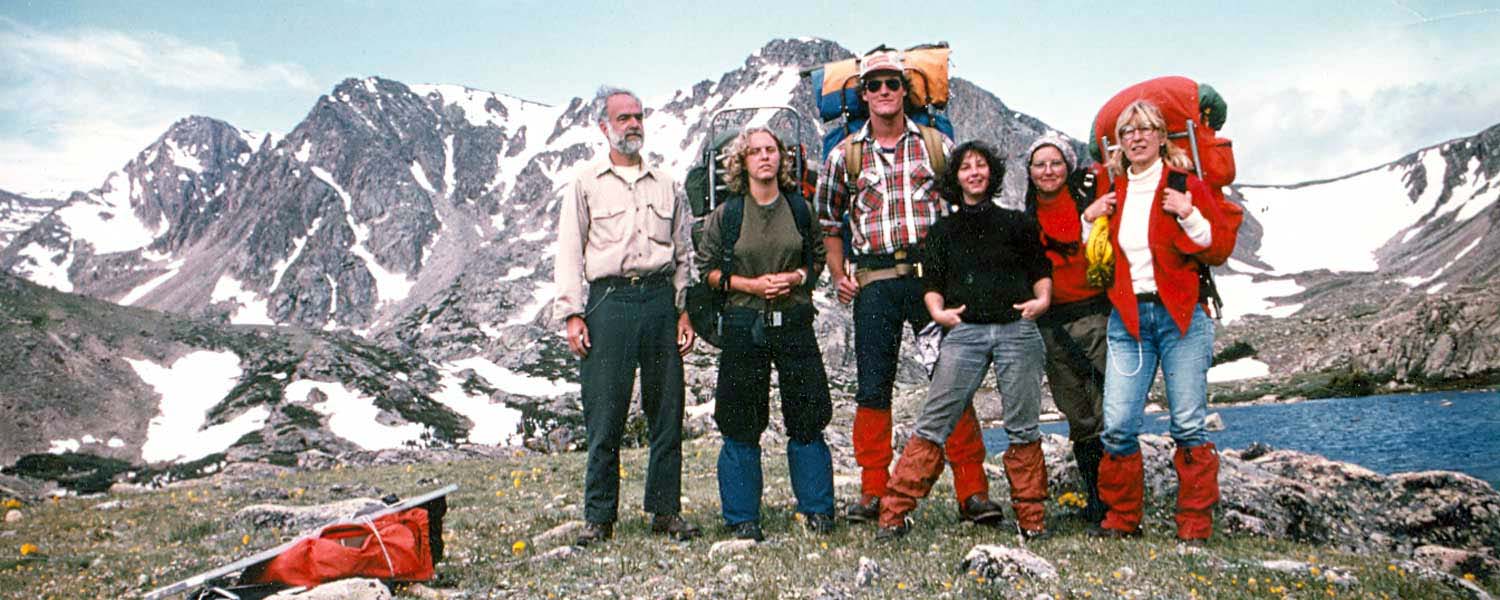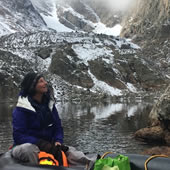 |
Jill Baron, PhD
Principal Investigator
Dr. Jill S. Baron is a Senior Scientist with the U.S. Geological Survey, and a Senior Research Ecologist with the Natural Resource Ecology Laboratory at Colorado State University. Her interests include applying ecosystem concepts to management of human-dominated regions, and understanding the biogeochemical and ecological effects of climate change and atmospheric nitrogen deposition to mountain ecosystems. She is founder and Co-Director of the John Wesley Powell Center for Earth System Science Analysis and Synthesis. Baron was President of the Ecological Society of America in 2014 and is a Fellow of the ecological Society of America and the American Association for the Advancement of Science. She is founder and Principal Investigator of the Loch Vale Watershed long-term monitoring and research program in Rocky Mountain National Park, an instrumented catchment with nearly 40 years of measurements. She is a member of the project management board of the United Nations funded International Nitrogen Management System, and a co-Principal Investigator of the Coordinating Hub of the Critical Zone Collaborative Network. Dr. Baron received her Ph.D. from Colorado State University in 1991, and has undergraduate and master's degrees from Cornell University and the University of Wisconsin.
Jill.Baron@colostate.edu |
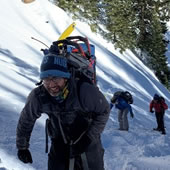 |
Tim Weinmann
Program Manager, USGS Pathways Intern
Tim manages the Loch Vale Watershed Long-term Ecological Research and Monitoring Program, maintaining research facilities and equipment while collecting and analyzing field data year-round. He received his MS in Ecology from Colorado State University’s Graduate Degree Program in Ecology in 2020. His research interest centers on understanding how the metabolic processes of living organisms reshape their environments, and how human actions may alter those processes. He received his BS from CSU in 2017 with majors in Ecosystem Science & Sustainability and Watershed Science and also holds a Graduate Certificate in Data Analysis.
tweinmann@usgs.gov |
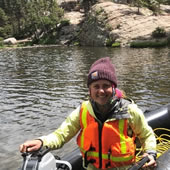 |
Caitlin Charlton
Graduate Student, Graduate Degree Program in Ecology
Caitlin’s research interest lies in limnology. She specifically focuses on the effects of global change on mountain lake ecosystems, centered on changes to mountain lake algal productivity. Her M.S. research is focused on analyzing spatial and temporal drivers of change to mountain lake productivity in the Sierra Nevada, California, and looking at regional comparisons of change in lake productivity in mountain ranges across the western United States. She is also using remote sensing and underwater photogrammetry approaches to map and monitor benthic algal blooms and pelagic lake productivity in the Loch Vale Watershed, with future goals to expand to other mountain regions.
Caitlin.Charlton@colostate.edu |
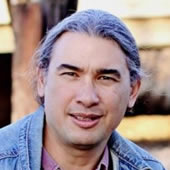 |
Paul Evangelista, PhD
Research Ecologist, Natural Resources Ecology Lab
Dr. Paul Evangelista is a Research Ecologist at the Natural Resource Ecology Laboratory (NREL) and Assistant Professor in the Department of Ecosystem Science and Sustainability. His research at the NREL extends across a broad array of interests, including invasive species, forestry, rare and endangered wildlife, ecosystem services, fire ecology, and climate change. Dr. Evangelista’s interests are frequently examined in the context of space and time through a suite of integrative spatial modeling techniques that combine field data, traditional and expert knowledge, geographic information systems (GIS), remote sensing and spatial statistics. His work is regularly coupled with non-traditional educational programs that aim to build capacity through experiential learning, applied science and stakeholder engagement. This is best demonstrated by his advisory role with the DEVELOP Program, part of NASA’s Applied Science Program, hosted by the NREL and the US Geological Survey. Ultimately, Dr. Evangelista’s broad research interests center on supporting sustainable management, stewardship and conservation of natural resources.
Paul.Evangelista@colostate.edu |
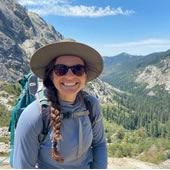 |
Anna Shampain
Graduate Student, Graduate Degree Program in Ecology
Anna’s research interests and professional experience are rooted in aquatic ecology within montane ecosystems. Before joining the LVWS lab group, she worked in Sequoia and Kings Canyon National Parks on aquatic ecosystem monitoring and restoration projects in the remote alpine habitats of the Sierra Nevada. In addition to her work in the LVWS, Anna will be interpreting recent ecological and global change history of northern New Mexico using lake sediments collected from Santa Fe Lake.
|
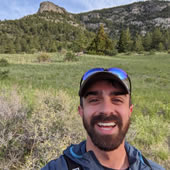 |
Kirk Archarya
USGS Contractor, Western Mountain Initiative
Kirk joins the Western Mountain Initiative after completing his master’s thesis at the University of Michigan. Previous research centered on species interactions and response to water availability in temperate forests. Recently, Kirk joined the Baron group as a summer research fellow through the ESA, Future Park Leaders program. His field season project mapped the spatial extent of visitor impacts through the Loch Vale Watershed using a community science-based approach. Kirk is currently working with the group to connect off-trail impacts and direct nutrient inputs from human waste to show the extent of human impact along a gradient of trail user volume. Broadly, he is interested in the intersection of ecosystem ecology, community science, and applied management. In his free time, Kirk enjoys any human-powered adventure, cooking for loved ones, or serving his community. Working remotely from Michigan now, he cannot wait for a return to Loch Vale soon!
|
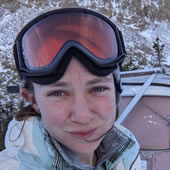 |
LeAnna Warren
Undergraduate Research Assistant, Ecosystem Science & Sustainability major
LeAnna is a junior at CSU currently pursuing a degree in Ecosystem Science and Sustainability with a special interest in Environmental Justice. She is excited by the possibility of combining her fascination for technical research and love for the outdoors, with her passion for policy. Currently she is working with The Loch Vale Research Program to gain hands-on experience in the field and in the lab. She is also in the process of co-authoring a paper that covers limnological research she and her mentor worked on in the summer of 2020, which focuses on the effects of climate change on Alpine lakes that provide municipal water resources for communities in the front range.
LeAnna.Warren@colostate.edu |
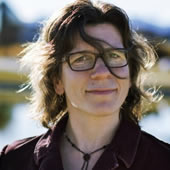 |
Stephanie Kampf, PhD
Professor, Watershed Science
Stephanie is a Colorado native whose interests in hydrology and geology started in the desert canyons of her western Colorado home. She studied geosciences for her BS degree, hydrogeology for her MS degree, and Civil and Environmental Engineering for her PhD. She joined the faculty at CSU in 2007 and enjoys teaching both undergraduate and graduate classes in Watershed Science. Her research team is working to understand how headwater streams function across the diverse landscape of the West, including high mountains, forests, deserts, and cities.
Stephanie.Kampf@colostate.edu |
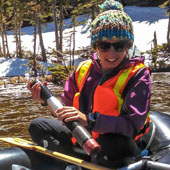 |
Former Student: Bella Oleksy
PhD, Graduate Degree Program in Ecology
Dr. Isabella Oleksy is an ecosystem ecologist and aquatic biogeochemist investigating the effects of global change on lakes and streams. Dr. Oleksy conducts research on aquatic ecosystems that are impacted by multiple concurrent stressors (e.g., warming, changing precipitation regimes, and associated nutrient and organic matter loads); her work seeks to understand the implications of multiple environmental stressors on primary production and aquatic food webs. She is working to test and refine models of how lake productivity varies along gradients of lake shape, hydrology, and nutrient inputs. She is currently postdoctoral researcher at Cary Institute of Ecosystem Studies and will be transitioning to a new position at the University of Wyoming in summer 2021.
bellaoleksy@gmail.com
http://isabellaoleksy.weebly.com |
